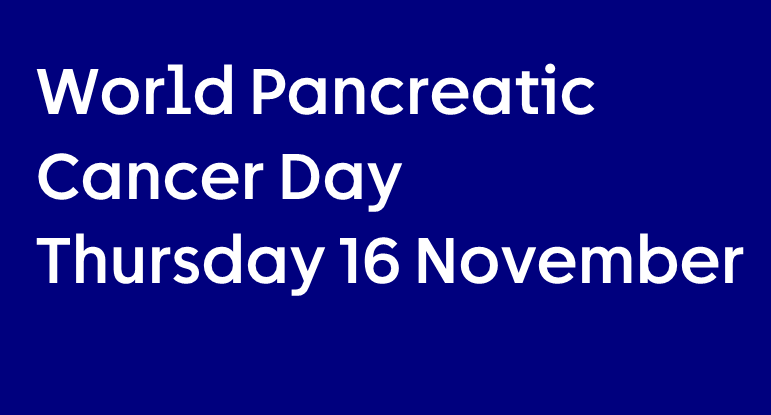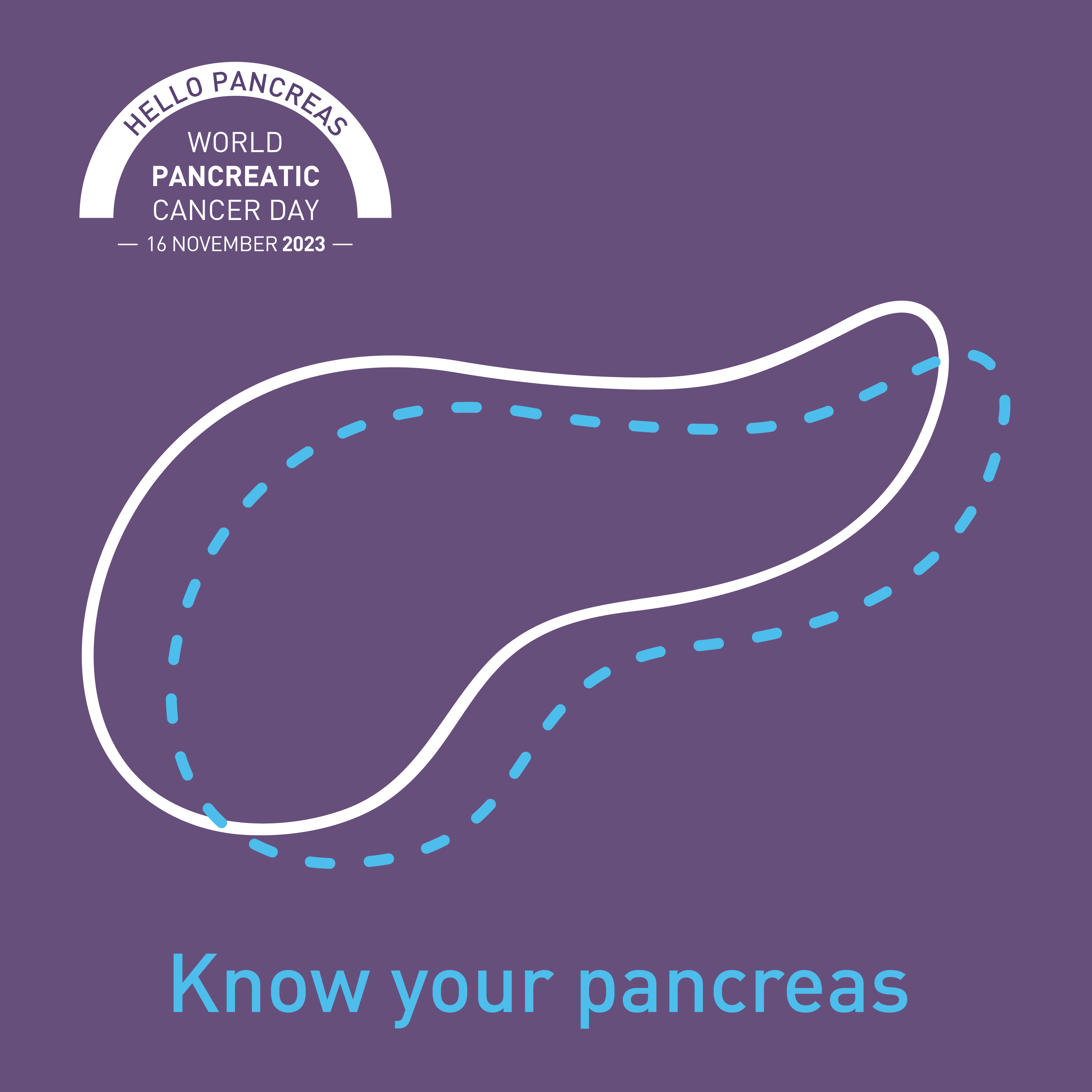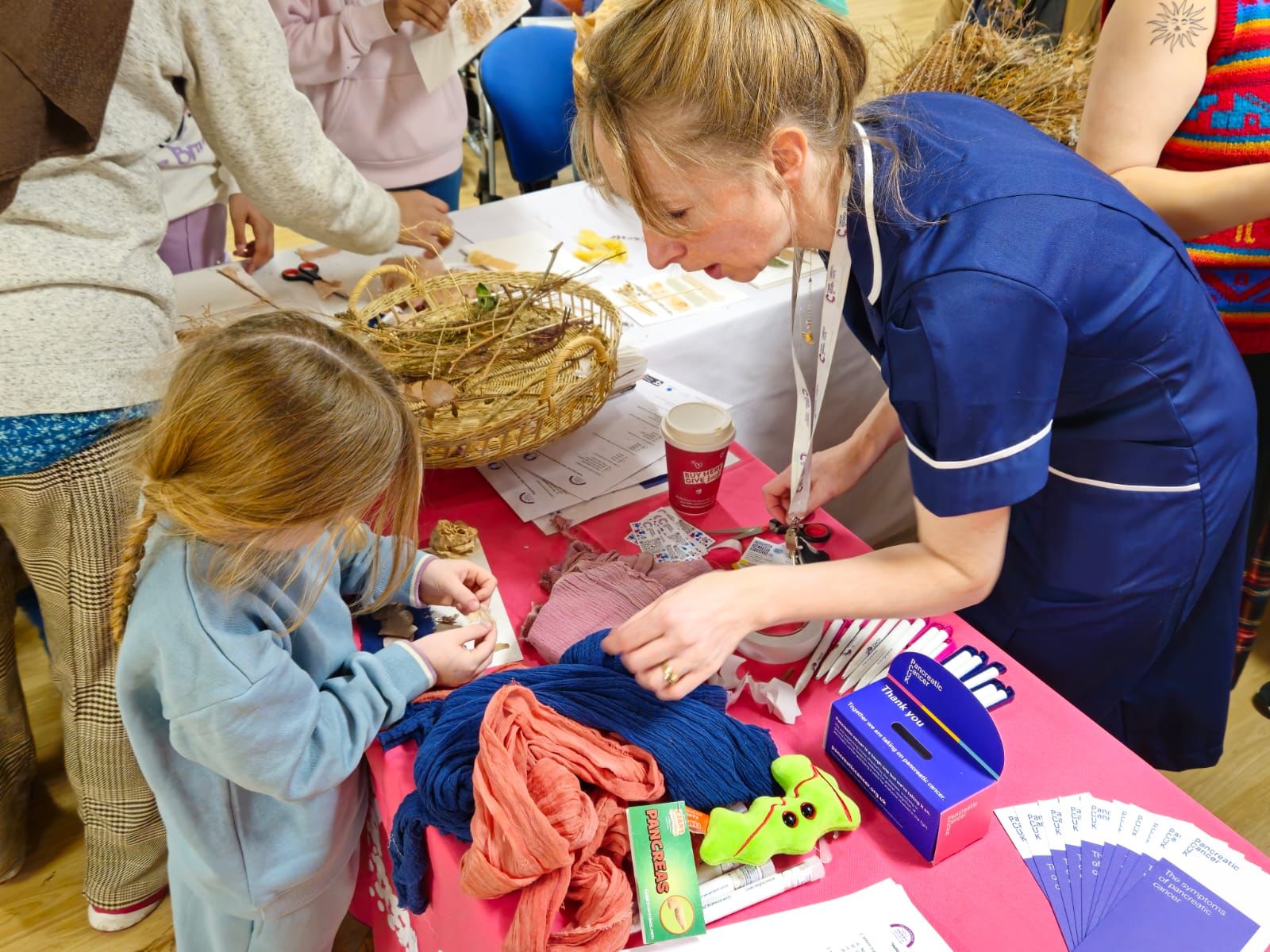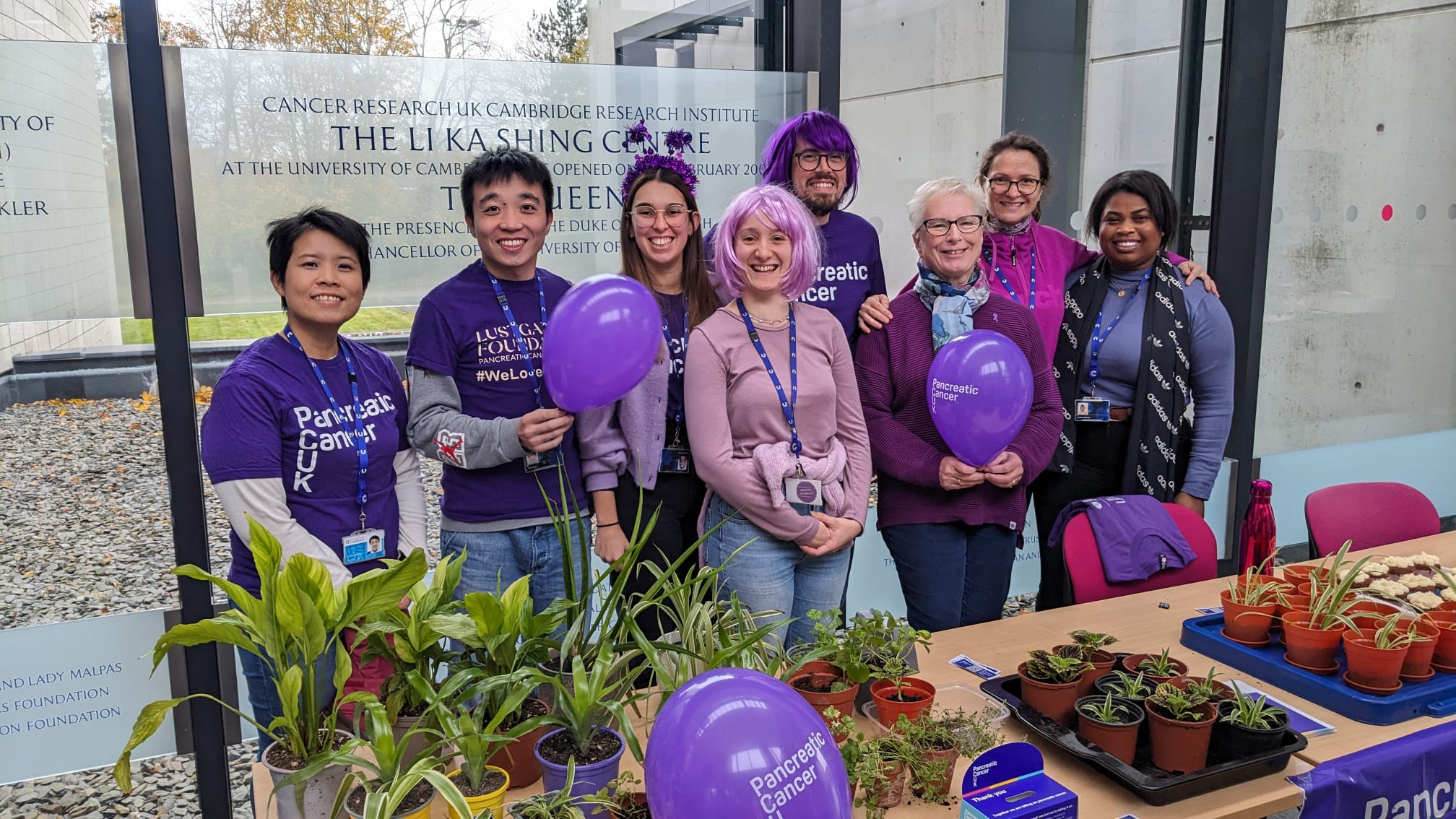
Today we launch a pioneering international collaboration between our Pancreatic Cancer Programme, the soon-to-launch Botton-Champalimaud Pancreatic Cancer Centre in Lisbon, Portugal and the Jreissati Pancreatic Centre at Epworth in Australia.
The exponential rise in pancreatic cancer cases, particularly in industrialised nations, has prompted these leading research centres to join forces.
With pancreatic cancer poised to become the second leading cause of cancer death in Europe and the USA within the next two decades, the three partner institutions are emphasising the urgent need for enhanced public awareness about the disease.
Their collaborative effort will focus on educating the public about risk factors, early symptoms, and the critical importance of early detection, with a collective aim to improve treatment outcomes and survival rates.
Understanding Pancreatic Cancer
The pancreas, a vital gland located deep inside the abdomen, plays a dual role in digestion and blood sugar regulation. Pancreatic cancer arises from abnormal cell growth in the pancreas gland, leading to tumours. With early symptoms often non-specific, early detection is challenging but crucial for effective treatment.
Key Symptoms and Risk Factors
Early symptoms can include mid-back pain, unexplained weight loss, stomach pain, and jaundice, among others, while risk factors include smoking, obesity, age, type 2 diabetes, chronic alcohol consumption, and family history. A combination of symptoms, risk factors, and diagnostic tests like imaging, endoscopy, and laparoscopy aid in diagnosis.
World Pancreatic Cancer Day activities
To mark World Pancreatic Cancer Day on Thursday 16 November, staff and patients across the Cambridge Biomedical Campus are being encouraged to learn more about the symptoms of pancreatic cancer, risk factors and the importance of earlier detection through a number of activities organised by Cancer Research UK Cambridge Centre, Cambridge University Hospitals, CUH Arts and the Cambridge Cancer Research Hospital project:
- A panel of experts and patients will be answering questions on the day-to-day management of pancreatic cancer in an online webinar from 08:30-09:30, hosted by the Cancer Research UK Cambridge Centre Pancreatic Cancer Programme.
- A Hello Pancreas quiz (produced in collaboration with Jreissati Pancreatic Centre at Epworth in Australia and Botton-Champalimaud Pancreatic Cancer Centre in Lisbon, Portugal), and creative activities helping to shape the future Cambridge Cancer Research Hospital are taking place in Addenbrooke’s Outpatients Department from 10:30-13:30.
- A cake and plant sale to raise funds for pancreatic cancer research is taking place in the reception area of the Cancer Research UK Cambridge Institute (Li Ka Shing Centre, Robinson Way, CB2 0RE) from 11:00-15:00.
More about the Collaborating Centres
Botton-Champalimaud Pancreatic Cancer Centre:
A groundbreaking initiative by the Champalimaud Foundation and philanthropists Mauricio and Charlotte Botton, this centre is the first in the world dedicated to both research and treatment of pancreatic cancer. Funded by a generous €50 million donation, it aims to advance our understanding and control of this disease, often diagnosed in its advanced stages.
Jreissati Pancreatic Centre at Epworth:
Established by the Jreissati family in collaboration with the Epworth Medical Foundation, this centre is driven by a personal commitment to combat pancreatic cancer. Focusing on early diagnosis, the centre strives to improve patient outcomes significantly through improved treatment, research and education.
CRUK Cambridge Centre – Pancreatic Cancer Programme:
An integral part of Cancer Research UK (CRUK) Cambridge Centre, this programme unites experts across various disciplines. Their collaborative research aims to bring breakthrough therapies from the lab to the patient's bedside, improving patient outcomes through innovative trials and studies.


















